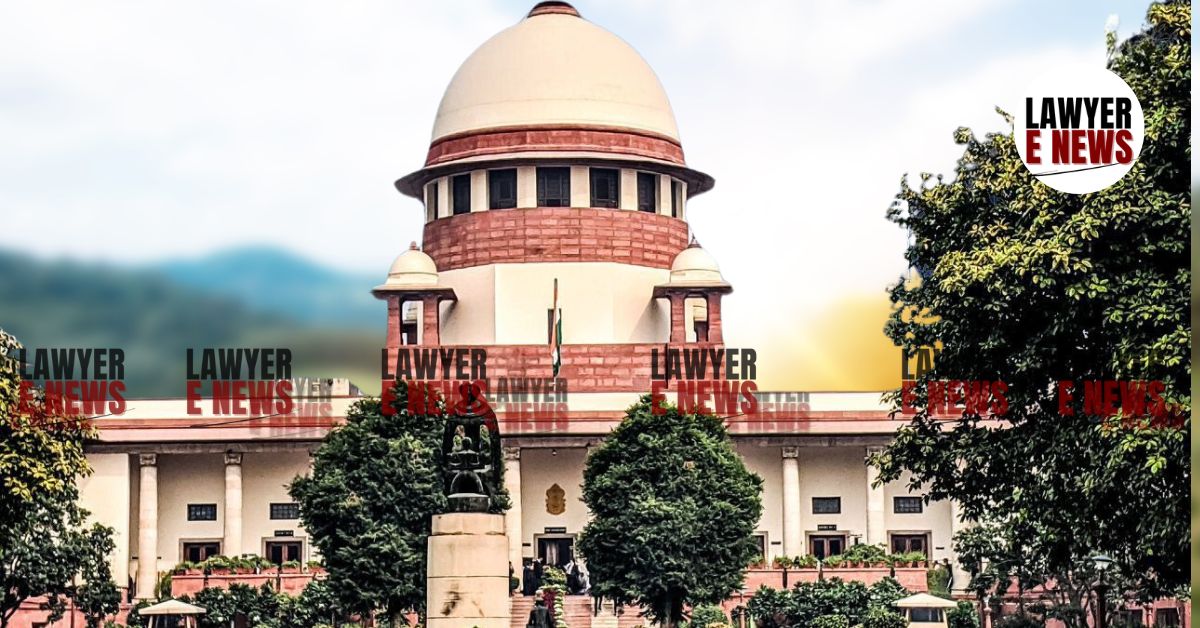-
by Admin
17 February 2026 4:27 AM



“Fraud Allegation Requires Evidence, Not Rhetoric”, In a judgment Supreme Court of India refused to entertain a Special Leave Petition filed by Nagam Janardhan Reddy, former MLA and Chairman of the Public Accounts Committee, challenging the dismissal of his Public Interest Litigation alleging a ₹2,426.07 crore scam in the Palamuru Ranga Reddy Lift Irrigation Scheme (PRRLIS). The Court held that the allegations—relating to the alleged fraudulent revision of Electro Mechanical (E&M) equipment estimates—required factual adjudication, which could not be resolved in proceedings under Article 226 of the Constitution.
“Such allegations are matters of fact, and the writ jurisdiction is not a forum for fact-finding trials,” observed a Bench comprising Justice B.V. Nagarathna and Justice Satish Chandra Sharma, as it dismissed the SLP.
Allegation of ₹2,426 Crores Loss Dismissed as “Factually Disputed”
The petitioner had sought a Writ of Mandamus to declare the action of the respondents in revising the project estimates from ₹5,960.79 crores to ₹8,386.86 crores as fraudulent and to quash all consequential actions. He also demanded a CBI investigation, alleging deep-rooted corruption and loss to the public exchequer.
However, the Supreme Court found that such a declaration could not be granted in writ proceedings. “We find that those are aspects which would call for determination of facts or in other words, a factual adjudication which cannot be done in a writ petition filed under Article 226,” the Court said.
“Mere Allegations Cannot Mandate CBI Probe”: Court Defers to High Court’s Discretion
On the issue of referring the matter to the CBI, the Supreme Court declined to interfere with the High Court’s discretion. It ruled:
“We do not think that in this Special Leave Petition, we can sit in judgment over the non-exercise of discretion in favour of the petitioner… The High Court was justified in not exercising its discretion and jurisdiction to refer the matter to the CBI.”
Res Judicata and Repetitive Litigation: “Same Petitioner, Same Project, Same Allegations”
The Court noted with concern that the petitioner had earlier filed three separate PILs (Nos. 28/2016, 179/2016, 338/2017) challenging various aspects of the same irrigation project. The present PIL, it held, was clearly barred by constructive res judicata, as it sought to reopen settled issues without disclosing full facts.
“We also record the fact that the petitioner has been pursuing the matter right from the time of issuance of the tender... and the other petitions have been concluded... It is stated that only a review petition has been filed with regard to PIL No.28/2016.”
CVC Report Clears Project of Wrongdoing: “Complaint Unsubstantiated”
Crucially, the Court took note of the Central Vigilance Commission’s Office Memorandum dated 12.09.2017, which had found the petitioner’s complaint to be unsubstantiated. The CVC, after examining the complaint regarding PRRLIS packages 5 and 8, found no evidence of corruption or irregularity.
“The Central Vigilance Commission has stated that it was a false complaint and was not at all substantiated... and had decided to put the matter to rest.”
The Court held this report to have persuasive evidentiary value in assessing the prima facie credibility of the PIL.
“No Fraud Proven, No Writ Relief Warranted”: Final Order of the Court
Rejecting all contentions by the petitioner, the Court concluded:
“We are not inclined to consider this Special Leave Petition any further. Hence, the same is dismissed.”
This decision affirms the principle that mere suspicion, even from a public figure, cannot substitute for concrete evidence, and that public interest litigation must not become a tool for re-agitating settled matters.
Date of Decision: May 21, 2025
